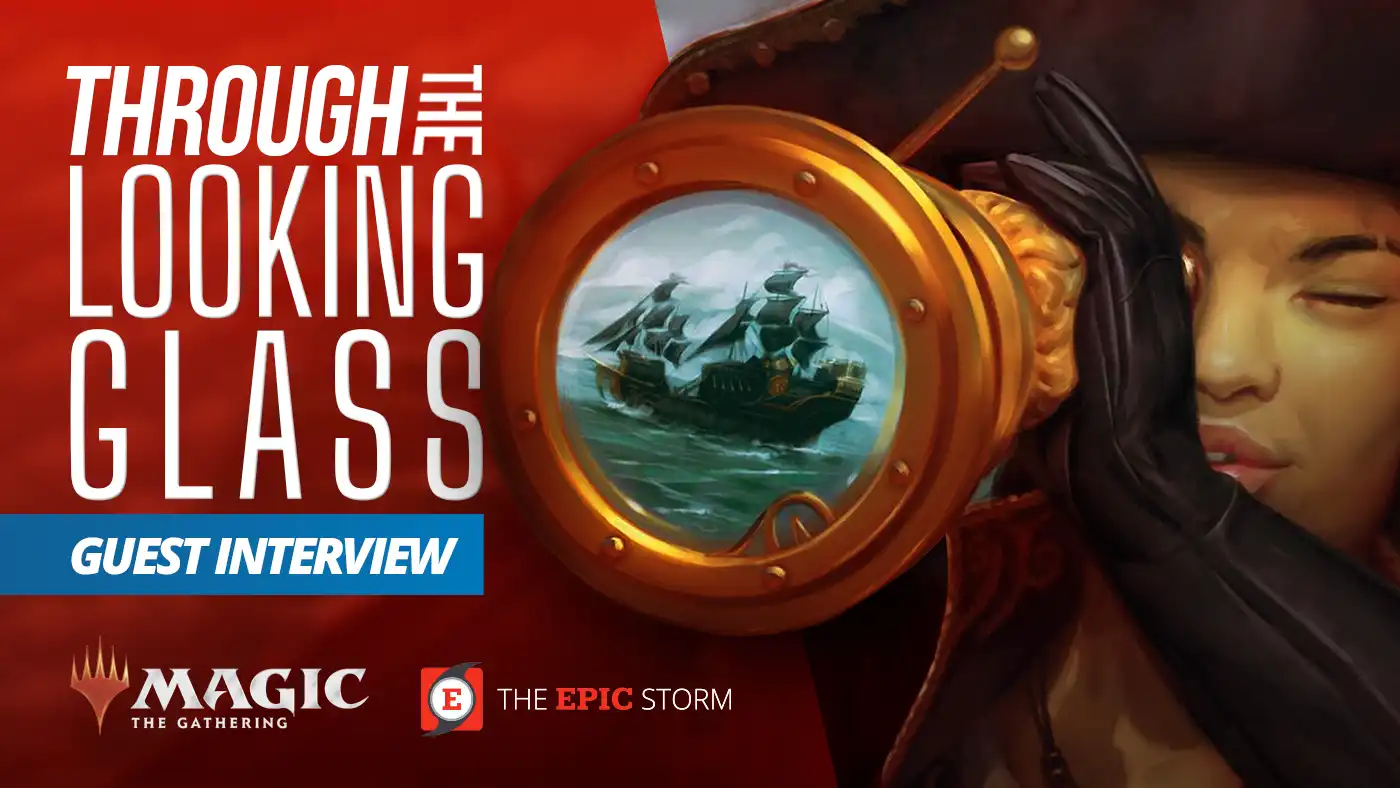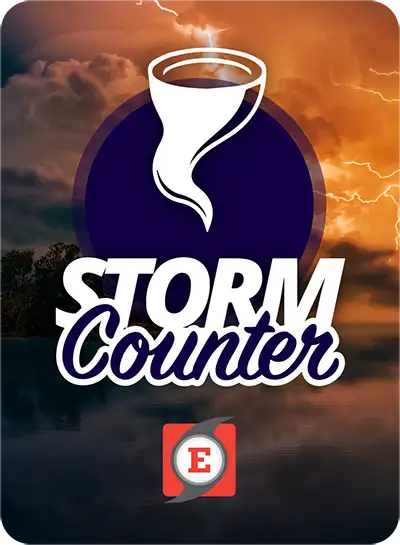
Special Guest
A few words on Matthew Vook
(Twitter: @Ozymandias172 | MTGO: Ozimandias17)
Matthew Vook is the finalist of SCG DC Legacy 2017, the winner of SCG Baltimore Legacy 2018, and the 2019 MTGO Legacy Format Champion. He has numerous MTGO Legacy Challenge Top 8’s and several wins.
There are three frequently played versions of Jeskai Control, and almost all of them play at least three copies of [[Narset, Parter of Veils]]. I helped to popularize the version with [[Expressive Iteration]] and main deck [[Monastery Mentor]]. This version also has more non-basic lands. Another commonly played version is heavy on the three-mana planeswalkers, but does not play [[Expressive Iteration]]. This version typically only has one [[Day’s Undoing]] but no [[Hullbreacher]]. This version also has [[Jace, the Mind Sculptor]] and [[Supreme Verdict]]. The least played Jeskai Control variant has 2-3 [[Hullbreacher]] and 2-3 [[Day’s Undoing]]. Overalll I don’t like [[Hullbreacher]] because it is bad against UR Delver and opposing [[Swords to Plowshares]] or [[Pyroblast]] effects.
The most relevant interaction is four copies of [[Force of Will]] and two of [[Force of Negation]]. [[Prismatic Ending]] can also potentially tag a [[Wishclaw Talisman]] or other artifact if you pass the turn. 1-2 main deck [[Pyroblast]] and 3 -4 [[Narset, Parter of Veils]] can also disrupt your ability to draw cards. Some lists play 2-3 [[Hullbreacher]], but that is currently the least popular Jeskai variant. Rarely lists will have either one [[Spell Pierce]] or one [[Flusterstorm]] main deck, although this isn’t something I would expect.
Game one, I frequently won’t know what the opponent is on TES unless they have several recently published results with specifically TES and nothing else. In the blind with Jeskai, I keep most hands with a mix of lands and spells, so other Jeskai players are likely to have [[Swords to Plowshares]] or [[Prismatic Ending]] that are mostly dead. If I was almost certain that they were on TES, I would keep cantrip heavy hands on the play without countermagic or on the draw mull almost exclusively for countermagic, but wouldn’t go below five cards. Overall, I expect to lose game one against TES if they keep seven cards, unless I see multiple counters the first 10 cards of the game.
There are roughly three phases of every combo matchup. The first phase both players use cantrips to sculpt a hand. The combo player is looking for mana or payoff and the control player is looking for lock pieces or stack based interaction. The second phase is initiated by the combo player when they try to cast a meaningful spell that could lead to a win. If the combo player has a good enough hand, they will sometimes skip the first phase and either win the game the spot. Conversely, if the control player has meaningful interaction to stop them, the game transitions into the third phase. This is where the combo player and the control player try to rebuild. The control player needs to find lock pieces or interaction equal to the combo player or outpace them with card advantage. Sometimes, this also includes racing the combo player with damage, although they are more likely to win a game with overwhelming card advantage rather than purely by damage like a deck like Delver might.
[[Expressive Iteration]] is good in the rebuilding phase, but is really poor at finding interaction because it is so slow, especially on the draw. [[Snapcaster Mage]] has to be paired with [[Flusterstorm]] or will often be just a blue card to pitch to [[Force of Will]].
Generally, TES is too fast for an early [[Monastery Mentor]] to be particularly relevant. In general, if I have three mana in the early game ,I would rather cast [[Expressive Iteration]] or [[Narset, Parter of Veils]] to find more interaction. If I am casting [[Monastery Mentor]] early, it is because I already have multiple pieces of interaction. Frequently, [[Monastery Mentor]] isn’t cast until I have accrued a large advantage and have locked up the game, but just need a way to reduce their life points to zero. Of course, sometimes if your hand doesn’t come together, you need to jam [[Monastery Mentor]] and hope that the TES player’s hand is also non-functional.
In game one, the Mentor build of Jeskai has no answers to an early board of many [[Goblin Token]]s, but the other versions usually play two [Supreme Verdict]]. Players may also have [[Izzet Staticaster]] in the sideboard that may be brought in for the [[Goblin Token]]s or just as another blue card for [[Force of Will]]. In general, I think the TES player is more likely to win with [[Galvanic Relay]] or a normal [[Tendrils of Agony]] line.
The current builds of Jeskai Control are best equipped to deal with Doomsday decks compared to ANT or TES. Doomsday is the weakest to [[Narset, Parter of Veils]] compared to the other combo decks. Doomsday also protects its combo with [[Force of Will]] or sometimes [[Mystical Dispute]] which get hit by [[Pyroblast]] or negated by [[Teferi, Time Raveler]]. They also only have four payoffs in the full play-set of [[Doomsday]], so they are often slower to find it off cantrips or find a second copy if the first is countered. It is still incredibly scary if they have [[Dark Ritual]] and [[Doomsday]] in the first few turns of the game. ANT is somewhat harder because they generally care less about [[Pyroblast]] or [[Teferi, Time Raveler]], but they still get his by [[Narset, Parter of Veils]] especially with running [[Preordain]]. The ANT lists with green for [[Veil of Summer]] are even harder because they have more cards that get uniquely answered by the blue countermagic. TES is the hardest because it is the fastest of these [[Dark Ritual]] decks and mostly ignores [[Narset, Parter of Veils]], [[Teferi, Time Raveler]], and [[Pyroblast]]. The post board plan of [[Galvanic Relay]] instead of [[Ponder]] is also hard to interact with and makes [[Narset, Parter of Veils]] even worse. While I bring in all the [[Pyroblast]] effects against Doomsday or ANT, I would rather have some number of [[Prismatic Ending]] or [[Meltdown]] against TES instead.
At the very least, I would expect Jeskai Control to bring in two [[Flusterstorm]] and one [[Stony Silence]]. I also usually play a third copy of [[Force of Negation]] in the sideboard. I might also bring in 1-2 [[Meltdown]] depending on how many [[Prismatic Ending]] I want to leave in for opposing [[Carpet of Flowers]].
The only graveyard reliant card that I would want to hit from TES would be [[Echo of Eons]], but the timing window and the fact that you already stop it with [[Pyroblast]] or [[Narset, Parter of Veils]] means that [[Surgical Extraction]] doesn’t do much. Trying to snag an additional copy of a random card is unlikely to be impactful, but I might consider [[Surgical Extraction]] if I didn’t have anything else to bring in.
[[Meltdown]] rarely gets a good timing window against TES unless you have [[Teferi, Time Raveler]], and can hit a [[Lion’s Eye Diamond]] when they have relevant cards in hand or they play out random artifacts to enable a [[Galvanic Relay]]. In general, the TES player can probably play around it being particularly impactful.
 The general play pattern from Jeskai is to counter the tutor spells like [[Burning Wish]] or [[Wishclaw Talisman]], so if Jeskai has interaction they will often stop you from finding the [[Galvanic Relay]]. If you naturally have [[Galvanic Relay]], then [[Flusterstorm]] is the only relevant interaction. If it is the early game and your only payoff is [[Galvanic Relay]], you should try to mask that or otherwise a good Jeskai player might try to stop you from getting enough mana by countering [[Dark Ritual]] or [[Rite of Flame]] if you are getting Storm count with stuff like [[Chrome Mox]] without imprint or [[Lion’s Eye Diamond]].
The general play pattern from Jeskai is to counter the tutor spells like [[Burning Wish]] or [[Wishclaw Talisman]], so if Jeskai has interaction they will often stop you from finding the [[Galvanic Relay]]. If you naturally have [[Galvanic Relay]], then [[Flusterstorm]] is the only relevant interaction. If it is the early game and your only payoff is [[Galvanic Relay]], you should try to mask that or otherwise a good Jeskai player might try to stop you from getting enough mana by countering [[Dark Ritual]] or [[Rite of Flame]] if you are getting Storm count with stuff like [[Chrome Mox]] without imprint or [[Lion’s Eye Diamond]].
The matchup overall is unfavored, so you often need to take risks, especially with digging for particular cards with cantrips. The hardest part of the matchup is probably knowing when to counter the mana spells rather than the payoffs. As I mentioned earlier, you sometimes get a read and can infer from the number of cards in hand that their only payoff is [[Galvanic Relay]], so you have to keep them off mana instead of holding countermagic for a tutor spell.
Especially game one, the TES player shouldn’t feel overly rushed. The Jeskai has few meaningful ways to interact and has several dead draws due to playing removal spells for creatures and permanents. In game one, the TES player can often wait to ensure a smooth combo turn rather than trying to combo as soon as possible.










